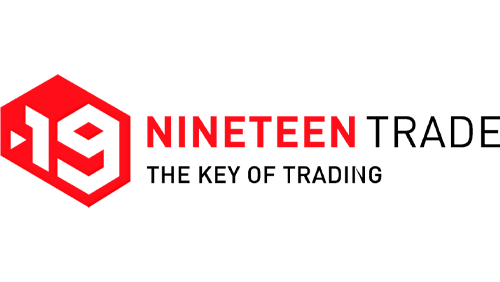Introduction: From Reimagining to Cultural Resonance
Mythological characters have long served as archetypes that reflect fundamental human concerns, desires, and fears. In modern media, their reinterpretation extends beyond entertainment, shaping societal values and cultural identities. The process of reimagining these ancient figures allows creators to explore contemporary issues, making myths relevant for new generations. This ongoing dialogue between old stories and new contexts underscores why mythology remains a vital lens for understanding our world today.
Table of Contents
- Mythology as a Reflection of Societal Values Today
- The Intersection of Mythology and National Identity
- Mythology’s Role in Contemporary Artistic Expression
- Digital and Interactive Media: New Frontiers for Mythological Stories
- The Education of Mythology in the Digital Age
- From Legends to Screen: The Cyclical Nature of Mythological Impact
- Bridging Back: How Modern Media Continues to Reimagine Mythology’s Cultural Significance
Mythology as a Reflection of Societal Values Today
Modern adaptations of mythological stories serve as mirrors that reflect current moral and ethical debates. For instance, Marvel’s reinterpretation of Thor emphasizes themes of leadership, responsibility, and redemption, resonating with contemporary discussions on power dynamics and accountability. Similarly, the portrayal of gods and heroes in films like Wonder Woman and Black Panther showcases evolving ideals of justice, gender equality, and cultural pride.
Archetypes such as the hero, trickster, or wise elder continue to shape individual and collective identities. These figures are often adapted to embody modern virtues or critique outdated norms. For example, the character of Loki has been transformed from a villain in Norse myth to a complex antihero in recent comics and series, illustrating shifting attitudes toward morality and agency.
“Mythological narratives are not static; they evolve alongside society, providing a dynamic framework for moral reflection and cultural dialogue.” – Cultural Mythologist
The Intersection of Mythology and National Identity
Countries often harness their mythological heritage to foster a sense of pride and unity. Greece, for instance, promotes its classical myths—such as those of Zeus and Athena—in tourism campaigns that connect visitors with a shared cultural history. Similarly, the integration of mythic narratives into national branding helps create a distinctive identity, as seen in Egypt’s use of ancient Egyptian deities in promoting tourism and cultural heritage.
This strategic reframing of myths reinforces collective memory and national pride. For example, Japan’s reinterpretation of Amaterasu emphasizes themes of harmony and renewal, aligning ancient stories with modern national values. Such narratives often appear in festivals, monuments, and cultural diplomacy, bridging past and present.
Mythology’s Role in Contemporary Artistic Expression
Beyond visual media, mythological themes permeate literature, music, and fine arts. Contemporary poets and novelists draw inspiration from mythic motifs to explore themes of identity, conflict, and transformation. For instance, Margaret Atwood’s Penelopiad reimagines the Odyssey from Penelope’s perspective, offering fresh insights into gender roles and resilience.
Hybrid genres such as science fiction and fantasy frequently merge myth with futuristic concepts. The Percy Jackson series blends Greek mythology with modern settings, making ancient gods accessible and relevant. Similarly, artists reinterpret mythic symbols—like the phoenix or the serpent—in paintings and music to comment on current social issues such as climate change and political upheaval.
This ongoing reinterpretation underscores the flexibility of myth as a tool for commentary and reflection, allowing creators to address contemporary concerns through the lens of ancient stories.
Digital and Interactive Media: New Frontiers for Mythological Stories
Video games such as God of War and Hades reimagine mythic worlds with immersive gameplay, enabling players to explore gods, heroes, and monsters firsthand. Virtual reality further enhances this experience, allowing users to step inside mythic landscapes like Olympus or Valhalla, making ancient stories visceral and interactive.
Social media platforms foster participatory myth-making, where users create and share their own mythic content. Hashtags like #MythologyMonday or TikTok trends involving myth-inspired stories demonstrate how digital communities keep myths alive, evolving through user engagement. This participatory culture not only democratizes storytelling but also ensures myths adapt to new contexts and audiences.
The impact of digital storytelling extends the lifespan of myths, transforming them from static narratives into living, evolving cultural artifacts.
The Education of Mythology in the Digital Age
Modern multimedia projects—such as interactive websites, video documentaries, and educational apps—enhance the teaching of mythological history. Platforms like Khan Academy and Coursera incorporate myth studies into broader curricula, making ancient stories accessible to diverse audiences.
Gamified learning modules and virtual tours of archaeological sites engage younger generations, fostering both awareness and appreciation. However, balancing reinterpretation with authenticity remains challenging; educators must ensure that myths are conveyed accurately while allowing room for cultural sensitivity and contemporary relevance.
From Legends to Screen: The Cyclical Nature of Mythological Impact
Contemporary media continually revisits and revitalizes ancient myths, creating a cyclical process of influence. Films like Clash of the Titans and series such as American Gods reinterpret mythic themes for new audiences, often inspiring further adaptations in other media. This feedback loop ensures that myths remain relevant, inspiring creative expression and cultural discourse across generations.
Looking ahead, emerging technologies like artificial intelligence and augmented reality promise to further transform myth storytelling. These innovations could enable personalized myth narratives or immersive mythic experiences, potentially shaping future cultural identities and collective memories.
Bridging Back: How Modern Media Continues to Reimagine Mythology’s Cultural Significance
The ongoing dialogue between ancient stories and their modern reinterpretations emphasizes the enduring importance of mythology in shaping cultural identity. As media continues to evolve, so too does the way myths are told, understood, and integrated into society. Ensuring cultural sensitivity and authenticity is essential to preserve their richness and relevance.
Ultimately, mythological narratives serve as a bridge connecting the past with the present, fostering a deeper understanding of human nature and societal values. Their persistent reimagining in modern media not only sustains their relevance but also enriches our collective cultural fabric.


 English
English Español
Español Français
Français